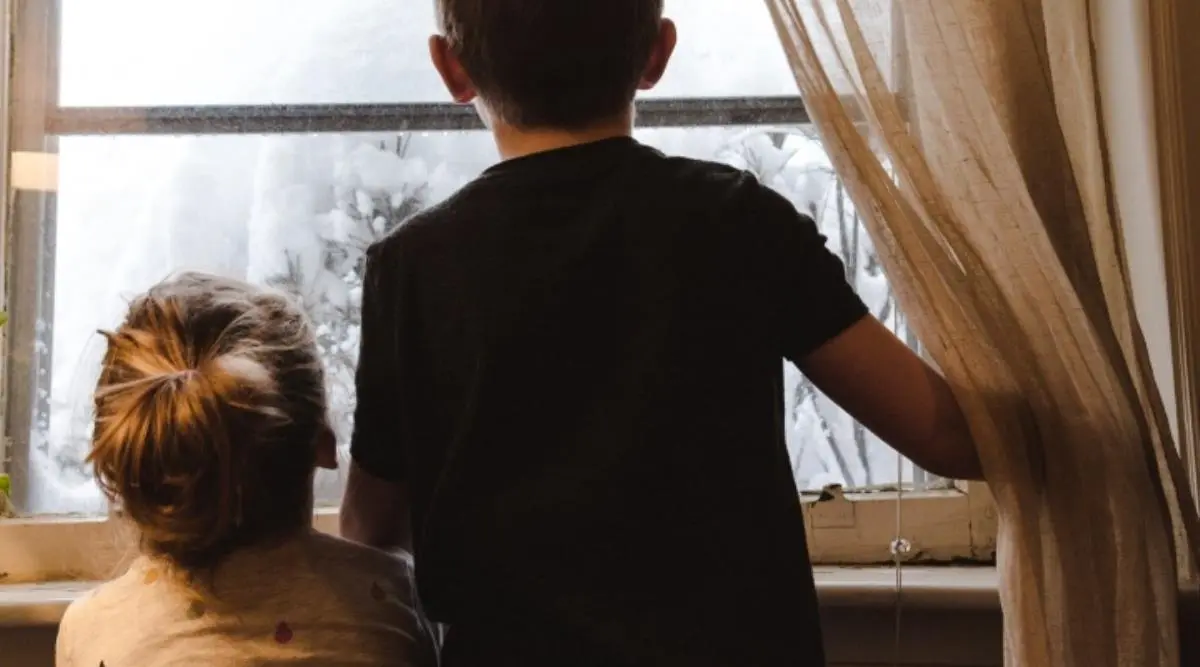During the state of confinement, behavioral problems can worsen in all children in general, and with greater intensity, in boys and girls diagnosed with attention deficit hyperactivity disorder ( ADHD ).
Our daily routine has been disrupted, which is a key issue for all children with ADHD . Schedules have changed; children are at home all day and both social contact and physical activity have greatly decreased. In this situation, it is easy for a tendency to increase the use of mobile phones, tablets, television and other entertainment technologies to emerge.
The best strategy for a family with a child with ADHD is to plan ahead and design a weekly action plan that can be reviewed and modified . Proposing that it be reviewed (for example, every Sunday afternoon) allows us to talk to the children about the agenda of the previous week and propose goals for improvement or changes. This technique allows us to make changes to the sources of motivation and positive reinforcement that we establish with the children, so that they comply with everything we have agreed upon.
How and what points should the action plan have?
- Create a routine . Children need to be kept busy during the day and, if possible, make it resemble the routine of school weeks.
- We recommend that planning be written down . It has to be visual and with different colors to delimit the weeks.
- It is important to involve children in the planning and make sure that they agree with it, that it is realistic for everyone and that they understand it.
In addition, it is recommended to follow the following specific guidelines:
- Establish a schedule for daily habits . It should include a schedule for sleeping habits (going to sleep and waking up), meal times, and what we will eat and have for dinner (like the meal calendars that schools have and that we have on the fridge at home). It is important that they get dressed (they don’t have to wear pajamas at home) and maintain a daily hygiene routine, especially hand hygiene.
- Follow a plan of daily activities , including educational activities such as homework and teleworking for parents. As well as those in which they can collaborate with parents, such as participating in the preparation of meals, cleaning, setting and clearing the table… The objectives and schedules must be clear. As specific aspects, it is recommended:
- Always do your homework in the morning , after breakfast. There are schools that send out homework a week after your visit. In this case, we recommend that you plan ahead (as far as possible) to complete each day’s homework (one for language, one for maths, etc.).
- If there is no time to practice reading for a while , we can leave it for the last moment of the day, before going to bed (just as it is recommended to do during school weeks).
- It is advisable to leave the time for games, leisure, crafts, sports, music… for the afternoons. It is also advisable to plan when these will be done with the parents and when they will not.
- It is advisable to set a schedule and time limit for the use of electronic devices . We must be realistic and during the weeks of confinement they will surely use them much more than usual. We do not have to worry, the use can also be beneficial if they are used for educational purposes and it will not take long for us to return to normality, we do not have to worry too much.
- It is recommended that you maintain conversations over the phone or through video calls with your friends as much as possible.
- If possible, they should continue to carry out extracurricular activities that are accessible in virtual classes (dance classes, languages, drawing, etc.).
- As practical aspects, we recommend that a clock be used (with hands for the little ones) and that schedules and obligations be written down and in a visible place in the house.
However, we cannot forget the most important thing…
We cannot lose sight of the fact that this situation is not easy for anyone, much less for a child with ADHD , who has difficulties with self-regulation, motivation and activation.
It is important to keep in mind that children with ADHD get frustrated, explode and upset more easily , especially in ambiguous, repetitive, monotonous and unstimulating situations, as can happen in the current lockdown situation. They need to be accompanied and given solutions. Therefore, we recommend that parents:
- Lower the level of demand that is transmitted to them.
- Accompany your sons and daughters, understand them and help them .
- Use motivation and positive reinforcement as the main tool . You can use small rewards and points that can be exchanged for some candy, a few more minutes on the tablet, save the points and when the confinement is over you can buy something small (always proportional and a small thing according to the agreements…).
- Avoid direct confrontation, threats and punishment as much as possible .
- Explain what is expected of them, but also what they can expect from us.
- Maintain conversations about emotions and feelings and not just about orders, schedules and duties .
Although we are not sure when this situation will change, we know that everything will return to normal. By this we mean that, in these weeks, the objective must be to provide peace of mind, security and support to the children and not just to give orders and obligations.
Adults are also worried about the work they have to do and the work they cannot do. We take advantage of this situation as an opportunity to learn to share and establish new routines and ways of relating to our children, with special use of motivation and affection.
Article source: https://faros.hsjdbcn.org/ca
#stayathome #covid-19 #assapassegurances
